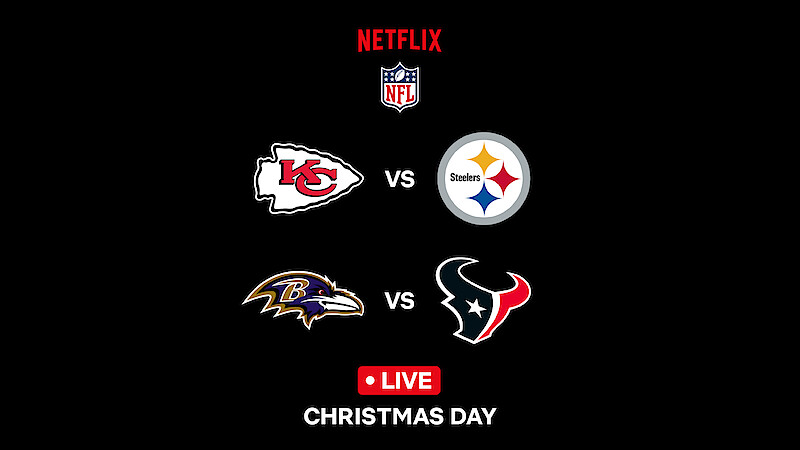The gradual sportification of Netflix – what the purchase of NFL rights mean for its strategy
May 21, 2024
Ian Whittaker, Twice City AM Analyst of the Year explores the gradual sportification of Netflix.
Last month, I pointed out how Netflix seemed to be in the process of changing its strategy to sports. The comments from Ted Sranados that Netflix is not “anti-sports” and the key is whether these events can make money suggested a change in strategy from what had been long-term held positions. If there is a clear indication that Netflix is serious when it comes to the change of direction, then the purchase of Christmas Day NFL games is probably the best indicator yet of where Netflix is heading. The three-year deal announced recently will see Netflix stream two Christmas Day NFL games, although the games will be simulcast on broadcast TV in the teams’ home cities.
It might be argued that Netflix has already made an entry into sports with its multi-year purchase of WWE rights as well as “sports adjacent” shows such as “The Roast of Tom Brady”. Yet it is worth noting that, when Netflix bought the WWE rights, it was at pains to point out that the WWE was not really “sports” but was more akin to live, scripted entertainment and “sports adjacent” is, well, not really sports. Yes, you can make a show about the NFL’s star player (at least in the past) and behind the scenes at Formula One but sports adjacent is not really sports.
There have been some who have argued that the move does not represent a major move into the live sports arena. On the surface, that argument has validity. After all, Netflix is only purchasing two Christmas Day games and is not making an extensive move into multiple games like Amazon and YouTube have done. There is also a cynical argument for suggesting that Netflix’s move will also help it when it comes to its financial results and stock price. Netflix is highly sensitive to its quarterly results and, having the games on Christmas Day, may mean it gains a temporary boost which – crucially – takes it past the December 31st date for reporting its net subscriber numbers (Netflix is stopping reporting net additions but not yet) as subscribers sign up for the games and then continue with the service over the Christmas holidays. That is perhaps too cynical but, then again, maybe not.
However, when looking at whether Netflix is serious about moving more into live sports, it is worth thinking about this not from where we stand now but, more importantly. where Netflix would like to be. Netflix has two clear priorities – to keep subscriber momentum and to build advertising revenues. If one looks at it this way, Netflix is more likely than not to expand (much) further into US live sports.
The first is that, in the US market, sports fans probably remain the single biggest category of extra subscribers for Netflix to tap into and particularly NFL games. US SVOD penetration is around 85% and, while Netflix has gained subscribers in 2023 and early 2024 by cracking down on password sharing, that boost is likely to run out (which is why it has been suggested Netflix is largely dropping subscriber disclosure). It is live sports which is holding up the likes of Disney-owned ESPN and other platforms such as Warner Bros Discovery. Hence the move by ESPN, WBD and Fox to create a joint sports streaming service (the recently renamed Venu) to fight off the streaming competition. Netflix needs to tap into these subscribers to help maintain growth.
The second is that Netflix wants to expand particularly its US advertising business and live sports – and NFL games in particular – are crucial for this. In 2023, live NFL games made up 93 of the top 100 most watched live US programmes and that figure has only increased year on year. With players such as Amazon and YouTube already making their move in the area, Netflix needs to expand its live sports offering if it is to capture a large share of the money that is expected to flow from US television advertising into streaming – its dramas and entertainment shows are just not enough.
What does this suggest for Netflix’s long-term strategy? Essentially, what I wrote last month – that Netflix is realised it cannot put off the live sports question for much longer and that it needs to come up with a strategy. We are likely to see this play out more over the few years.
As usual, this is not investment advice.

